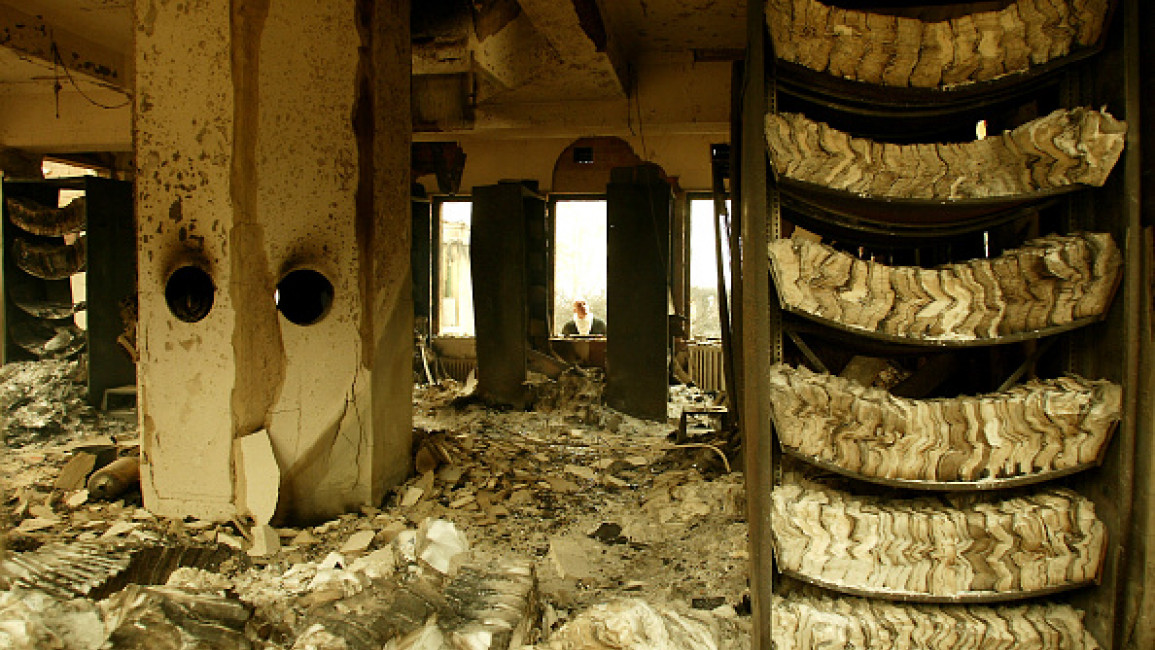Original article by Wagdy Sawahel in University World News
A total of 104 government and private higher education institutions in Sudan, as well as research centres and the National Fund for Student Welfare have been damaged and vandalised since April when the Sudanese Armed Forces (SAF) and the paramilitary Rapid Support Forces (RSF) became embroiled in a war.
All institutions in Khartoum State, where the capital is also located, as well as several in other states, have been affected.
The scale of destruction in Sudan’s higher education sector was outlined in a statement posted on Facebook on 27 August by the country’s ministry of higher education and scientific research which condemned the destruction. The ministry’s own offices were damaged in a fire that affected several floors.
“In the state of Khartoum, all public universities and their faculties were affected, in addition to more than 10 private universities, two national universities, and 20 university colleges,” according to the statement.
In addition, in some of the other 17 states, six public universities and their faculties were affected by looting, the crushing [of infrastructure] and arson in addition to damage to a number of private university faculties. The properties and homes of faculty members and workers have also been systematically targeted in the conflict.
In addition to the damage to infrastructure, transportation systems were also immobilised.
“All of the crimes against higher education and scientific research institutions and their employees have caused academic and research activity to stop in those institutions,” the ministry said.
Speaking to University World News, Dr Abdelillah Douda, a Darfuri academic, said Sudan’s higher education system would need years to be rebuilt “even if the war stops today, because the infrastructures of most of these colleges were destroyed by the fighting factions”.
“A clear example of this destruction is the University of El-Geneina, Zalengi, and Nyala in Darfur, which were burned to ashes,” Douda said.
Also, the entrance to the International University of Africa, a private university in Khartoum, and its main gate appear to have been burned as indicated in photos posted on X (formerly known as Twitter) on 6 August.
As a result of the turmoil, Sudan’s minister of higher education and scientific research, Professor Mohamed Hassan Dahab Ahmed, on 14 August closed all public, private and national universities and higher education institutions and suspended all academic activities until further notice.
Dire consequences
The consequences of the destruction of the education system, including higher education, are troubling commentators who predict that Sudan will face a shortage of qualified skilled workers which will affect the society’s economic development.
The shortage is due to the continuous disruption, for several years, of higher education because of the Sudanese revolution, the COVID-19 outbreak and the current armed clashes.
Douda, who earlier issued an appeal for humanitarian help in Darfur, said: “Disabling Sudanese universities and higher education institutions from carrying out their functions to provide qualified cadres who can contribute to the social and economic promotion of the community would automatically hamper society’s economic development.
“Sudan will face an acute shortage of skilled workers to help with rebuilding the country after this war because most current cadres have fled the country … and universities stopped producing new cadres to fill the gap,” Douda stressed.
The shortage may also affect teaching and research staff. The Sudanese University Professors Committee, or LAGSU, issued a statement on 27 August saying that halting the academic and research processes of university professors and the subsequent financial crisis they are experiencing had negatively affected their performance and pushed them to migration.
“We see the need to activate the agreements concluded with foreign universities and regional and international memorandums of understanding. The time has come to make maximum use of it so as not to lose the rest of them by [their] emigrating from the homeland,” according to the statement.
Impact on students
Adil Mohamed Ali, the executive director of the Sudanese Environment Conservation Society and a former coordinator at the United Nations Development Programme, or UNDP, told University World News the impact on students was “devastating”.
“Uncertain about their future, they are under great stress coupled with the impact of the SAF-RSF armed clashes that started in mid-April and has been ongoing for four months now,” Ali added.
“The development process and the well-being of the country will definitely suffer from the continuous disruption in the education process that dates back to 2019, with the start of the revolution in December 2018 that led to Omar al-Bashir’s removal from office, followed by the sudden shut-down of universities because of COVID-19, and, finally, the current RSF-SAF armed clashes,” Ali stressed.
“My daughter, for example, entered the Faculty of Mathematics in 2016 and she is still in her fourth year. Study in her faculty was suspended before the revolution and this suspension continued for almost three years,” Ali explained.
Similarly, a medical university student, one of many, who started her studies in 2017 has not graduated up till now because of the continuous disruption of university studies, according to a 16 August TV programme Eye on Africa, which showed how war pushed Sudan’s faltering education system into a state of collapse.
Education in the time of war
According to Ali, innovative solutions should be engineered, and virtual and e-learning platforms should be developed and availed to students, especially those who live in remote areas that suffer from intermittent internet services and power cuts.
“Flexible intra-universities cooperation should be established to give the students more opportunities to continue their education at other universities when there is conflict in their own state,” he said.
After two years of disruption because of political volatility and the COVID-19 pandemic, the United Nations Children’s Fund (UNICEF) has launched the Learning Passport, an online and offline e-learning platform and almost free of charge, in Sudan to enable schoolchildren to take part in flexible learning in different parts of Sudan, according to Ali.
“Similar systems should be developed by the universities to give equal chances to their students,” said Ali.
Douda said Sudan’s HE sector had two options.
“First to promote an online training system for their students, but this option is very difficult to achieve because of the continuous disruption of power and communication systems, particularly the internet in most of the country, in addition to the lack of well-trained faculties to perform these types of classes.
“The second option is to make agreements with Egyptian universities to open their doors to Sudanese students,” Douda pointed out.
“I was in Cairo last November and I was really shocked by the large number of Sudanese students in Egyptian colleges. Moreover, the expenses of going to university are way cheaper for Sudanese students in Egypt than in Sudan,” he said.
“If higher education leadership in the two countries manages to reach such an agreement, it will help Sudan a lot in the future. I believe Egyptian universities can accommodate 60% of Sudanese students,” Douda concluded.
Both parents and higher education leaders are worried about the future of thousands of students, but, unfortunately, there is little that can be done, Douda said.

